SUMMARY
This is AI generated summarization, which may have errors. For context, always refer to the full article.
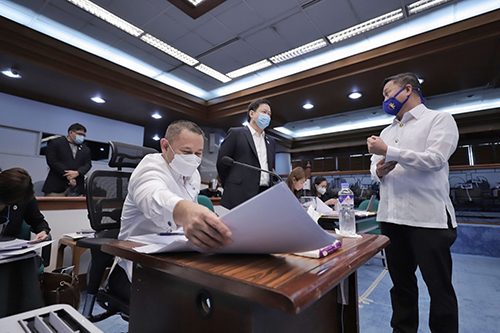
The Department of Justice (DOJ) is apprehensive about making COVID-19 vaccine mandatory, saying there will still be “legal wrinkles” if an existing law on mandatory immunization on children be amended to include it.
Justice Secretary Menardo Guevarra was pressed on this when he attended the DOJ’s 2022 budget hearing at the Senate on Wednesday, November 17, where he dodged questions on constitutionality and said it was not necessary anyway.
Guevarra later told Rappler in a text message: “A law making Covid-19 vaccination mandatory may not be necessary, as more and more people are voluntarily getting themselves vaccinated as vaccine supply becomes more available, and the hesitancy rate has substantially gone down.”
Making vaccination mandatory has constitutional issues, top of which are potential violations of one’s right to privacy. But experts, and later President Rodrigo Duterte, said the government can invoke its police power.
Police power worked for the Duterte government when it closed down Boracay island and restricted the right of people to travel to the world-famous beaches there. The Supreme Court ruled it was a valid exercise of police power to close the island.
When it comes to mandatory vaccination, Guevarra said: “While the state may invoke police power for the welfare of the people in general, there is the other issue of whether or not the measure is unreasonable or oppressive.”
Which holds more weight, police power or the oppressiveness factor? Guevarra did not directly answer.
“The objective is to reach herd immunity at the soonest possible time. If this objective could be achieved by means other than compulsion, I would go for those other means. This is my personal view on the issue,” said Guevarra.
An existing law – Republic Act No. 10152 – makes immunization compulsory for all infants and children for certain diseases like tuberculosis and measles and “such other types as may be determined by the Secretary of Health in a department circular.”
During the budget debates, Senator Francis Tolentino asked Guevarra if the Department of Health (DOH) could include COVID-19, and then amend the law.
Speaking for Guevarra, budget sponsor Senator Sonny Angara said that can be done, but it would be mandatory only for children, and there would still be “legal wrinkles.” In plenary debates, only lawmakers can speak on the floor, but agency heads can pass on and relay information.
“Legally, the Secretary of Health can do it but there are wrinkles, we are still under emergency use authorization, but legally, the Secretary feels he can do it, but it can only cover children,” said Angara.
Tolentino then raised the 4Ps law or RA 11310, Section 11(b) of which requires beneficiaries to have their children vaccinated to remain eligible for the cash aid program. Tolentino said, “if the children are not vaccinated, the parents cannot report to the payout system.”
“That’s one way to do it, that goes towards the mandatory end of the spectrum. But there’s also a provision regarding the monthly consultation of the 4Ps beneficiary with the Department of Social Welfare and Development (DSWD). It’s incumbent upon the DSWD representative to inculcate in that family the importance of vaccination, so we go the voluntary route before we go the mandatory route,” said Angara.
Angara and Tolentino are both lawyers. Tolentino pursued this discussion because he said he wanted the DOJ to lead the legal talks in the COVID-19 Inter-Agency Task Force (IATF) so they don’t go down “a slippery slope” when it comes to the pandemic response.
Recently, Guevarra disagreed with Labor Secretary Silvestre Bello that workers can be compelled to have themselves vaccinated.
If Duterte were to have his way, he would compel Filipinos to get the jabs, even calling the unvaccinated people “pangit” or ugly.
But this is not the first time Guevarra is not toeing the line of the Duterte government when it comes to the pandemic response.
For that, he earned a praise from opposition senator Franklin Drilon who said Guevarra “has, on occasion, taken an independent stand” from the strongman Duterte.
Guevarra had been repeatedly urged to apply for justice of the Supreme Court, but he turned down previous nominations and said he would rather stay as head of the DOJ “in troubled times.”. – Rappler.com
Add a comment
How does this make you feel?


![[Time Trowel] Evolution and the sneakiness of COVID](https://www.rappler.com/tachyon/2024/02/tl-evolution-covid.jpg?resize=257%2C257&crop=455px%2C0px%2C1080px%2C1080px)


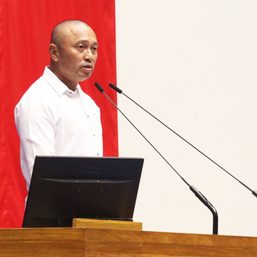
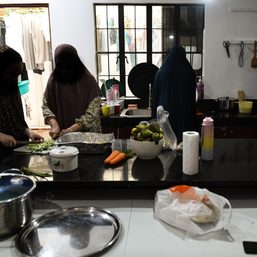
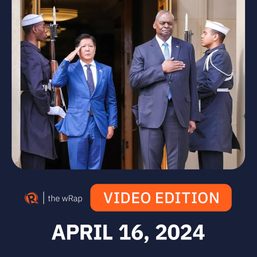
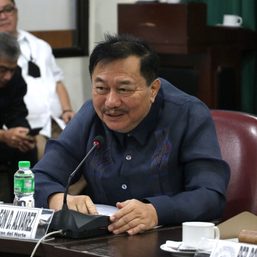
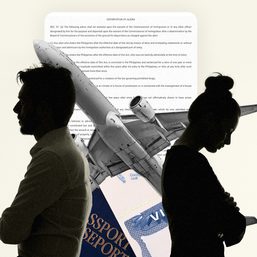
There are no comments yet. Add your comment to start the conversation.